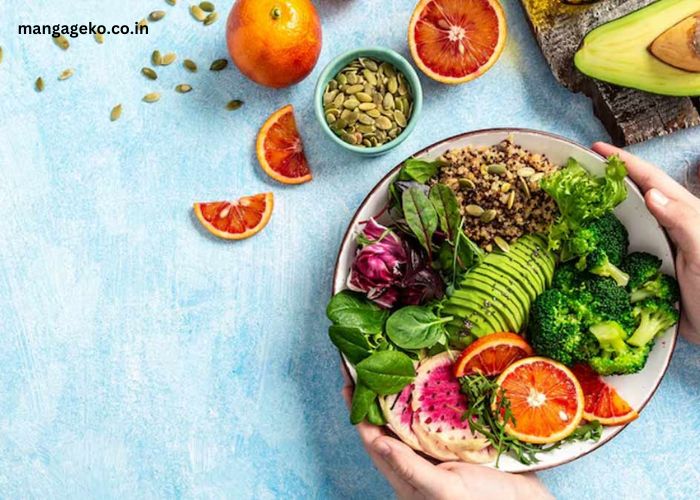As we step into 2025, the importance of making informed and health-conscious food choices has never been greater. With advances in health science and a growing awareness of the impact of diet on our overall well-being, nutrition has become a key component of achieving optimal health. This year presents new trends and updated insights that can help individuals make better food choices for a balanced, energetic lifestyle. Whether you’re looking to improve your physical fitness, boost mental clarity, or support long-term health, smart nutrition choices are the foundation of a thriving future.
In this blog post, we’ll explore the top smart nutrition choices for 2025 and how these trends can enhance your health. From understanding the latest nutrition science to embracing plant-based diets and gut health, these choices will guide you on your wellness journey.
Nutrition plays a vital role in shaping our health outcomes, and in 2025, it’s more important than ever to make educated decisions about what we eat. We now have a deeper understanding of how specific nutrients affect various bodily functions, from boosting immunity to improving mental health. The year 2025 brings forward advancements in nutrition science that enable individuals to make more personalized food choices, fostering overall wellness.
Smart nutrition choices go beyond following general dietary advice—they focus on optimizing specific areas of health. This involves recognizing the unique needs of your body, balancing macronutrients and micronutrients, and incorporating new trends that align with sustainable living. With so many food options and dietary philosophies out there, making the right choices can seem overwhelming, but this post will break down the most important and beneficial choices for the year ahead.
Key Points:
- Smart nutrition choices are essential for maintaining a healthy and balanced life in 2025.
- Personalized nutrition, based on individual needs, is becoming more common.
- Emerging food trends and nutrient knowledge can optimize mental and physical health.
What Are the Top Nutrition Trends for 2025?
As we head into 2025, several nutrition trends are gaining momentum. From personalized diets to plant-based eating, the future of nutrition is focused on sustainability, efficiency, and health optimization. Some of the key trends include:
- Personalized Nutrition Plans: Thanks to advancements in genetic testing and microbiome analysis, personalized nutrition is becoming more accessible. This approach tailors your diet to your individual needs, considering factors like genetics, lifestyle, and health goals. You can now get customized recommendations for the right foods and nutrients that will benefit your body the most.
- Plant-Based and Sustainable Eating: Plant-based eating is predicted to continue growing in 2025, not only because of its environmental benefits but also due to its positive impact on health. More people are choosing plant-based alternatives to meat and dairy, looking to reduce inflammation, improve digestion, and support heart health. Sustainable eating practices, such as choosing locally sourced and organic foods, are also becoming more popular.
- Gut Health and Fermented Foods: There is a growing focus on gut health in 2025, with more people recognizing the importance of maintaining a healthy gut microbiome. Fermented foods like kimchi, kombucha, and sauerkraut are becoming staples in many diets due to their ability to support digestion and immunity. Prebiotics and probiotics, which promote healthy gut bacteria, are also gaining widespread attention.
Note: Personalizing your diet based on your body’s unique needs is a major trend for 2025.
How Can You Incorporate More Plant-Based Foods into Your Diet?
One of the most impactful changes you can make for your health in 2025 is to incorporate more plant-based foods into your daily diet. This doesn’t mean you need to become a vegetarian or vegan, but adding more vegetables, legumes, grains, and plant-based proteins can offer numerous health benefits, including lower cholesterol, improved heart health, and better weight management.
Here are a few ways to make plant-based foods a larger part of your meals:
- Start with Simple Swaps: Begin by substituting plant-based proteins like beans, lentils, and tofu for animal-based proteins like beef, chicken, or pork. Try swapping dairy products with plant-based options such as almond milk, soy yogurt, or cashew cheese.
- Embrace Meatless Mondays: Commit to one day a week where you focus on plant-based meals. This is an easy and manageable way to introduce more plant foods into your diet without feeling overwhelmed.
- Explore Plant-Based Recipes: Search for exciting plant-based recipes that suit your taste buds. From hearty vegetable stews to nutrient-dense grain bowls, there are endless possibilities for delicious meals that don’t rely on animal products.
- Focus on Nutrient Density: Plant-based eating is not just about cutting out animal products; it’s about making sure you’re getting all the essential nutrients your body needs. Be sure to include nutrient-dense foods like leafy greens, avocados, quinoa, and chia seeds in your diet.
Comparison Table: Plant-Based Proteins vs. Animal-Based Proteins
| Protein Source | Benefits | Examples |
|---|---|---|
| Plant-Based | Lower in saturated fats, rich in fiber, antioxidants | Lentils, beans, tofu, tempeh, quinoa |
| Animal-Based | Complete proteins, rich in B12, iron, zinc | Chicken, beef, eggs, fish, dairy |
Reminder: While plant-based eating has numerous benefits, balance and variety are key to a healthy diet.
Why Is Gut Health So Important in 2025?
Gut health is now recognized as one of the pillars of overall health. Your gut microbiome, which consists of trillions of bacteria, plays a crucial role in digestion, immunity, mental health, and even your mood. In 2025, more people are understanding the profound connection between the gut and the brain, often referred to as the “gut-brain axis.” Research has shown that a healthy gut microbiome can influence everything from your immune system to your mental clarity.
Here are some ways to improve gut health in 2025:
- Eat More Fiber: Fiber-rich foods like vegetables, fruits, legumes, and whole grains feed the beneficial bacteria in your gut, promoting a healthy balance of microbiota.
- Add Fermented Foods: Fermented foods like kimchi, kefir, miso, and kombucha are rich in probiotics, which can help restore balance to your gut microbiome.
- Limit Processed Foods: Processed foods, especially those high in sugar, can disrupt the balance of gut bacteria. Reducing processed foods in favor of whole, natural foods supports a healthier gut.
- Stay Hydrated: Water is essential for digestion and nutrient absorption. Staying well-hydrated helps maintain the health of your digestive system and supports the function of your microbiome.
Comparison Table: Gut-Healthy Foods vs. Gut-Damaging Foods
| Gut-Healthy Foods | Gut-Damaging Foods |
|---|---|
| Fermented foods | Processed foods |
| Whole grains | Sugary snacks and sodas |
| Vegetables & fruits | Fried and greasy foods |
| Prebiotics (garlic, onion) | Artificial sweeteners |
How Can Smart Nutrition Support Mental Health in 2025?
In 2025, we are increasingly aware of the link between nutrition and mental well-being. What you eat can have a profound impact on your mood, focus, and overall mental health. The brain requires specific nutrients to function optimally, and certain dietary choices can help reduce symptoms of anxiety, depression, and brain fog.
Some smart nutrition choices for mental health in 2025 include:
- Omega-3 Fatty Acids: Found in fatty fish, flaxseeds, and walnuts, omega-3s are crucial for brain function and can help reduce inflammation associated with mental health disorders.
- Magnesium-Rich Foods: Magnesium plays a role in mood regulation and relaxation. Foods like spinach, almonds, and avocados are excellent sources of magnesium.
- Vitamin B6 and B12: These vitamins are essential for nerve function and energy production. Foods like eggs, poultry, and fortified cereals can help maintain optimal brain health.
- Stay Hydrated: Dehydration can contribute to fatigue and poor concentration, so make sure to drink enough water throughout the day.
Reminder: Nutrition is just one piece of the puzzle when it comes to mental health, but it’s a crucial one.
Conclusion
Smart nutrition choices for 2025 involve more than just eating to survive; they are about making thoughtful, intentional decisions to support your long-term health and well-being. Whether you focus on personalized nutrition, plant-based eating, gut health, or mental wellness, the key to success is making informed decisions based on your individual needs. By embracing the latest trends in nutrition and adopting a more mindful approach to food, you can achieve optimal health in 2025 and beyond.
FAQ’s
- What is personalized nutrition?
- Personalized nutrition tailors your diet to your unique needs based on factors like genetics, lifestyle, and health goals.
- How can I start eating more plant-based foods?
- Begin with simple swaps, like replacing meat with beans or tofu, and try meatless meals once a week to ease into plant-based eating.
- Why is gut health so important?
- Gut health influences digestion, immunity, mood, and brain function, making it a critical part of overall health.
- What are some foods that support mental health?
- Omega-3s, magnesium-rich foods, and vitamin B6/B12 help support brain health and mental well-being.
- How do I stay hydrated throughout the day?
- Drink water regularly, and include hydrating foods like fruits and vegetables in your diet.




